‘Remarkable progress’ made returning stolen assets
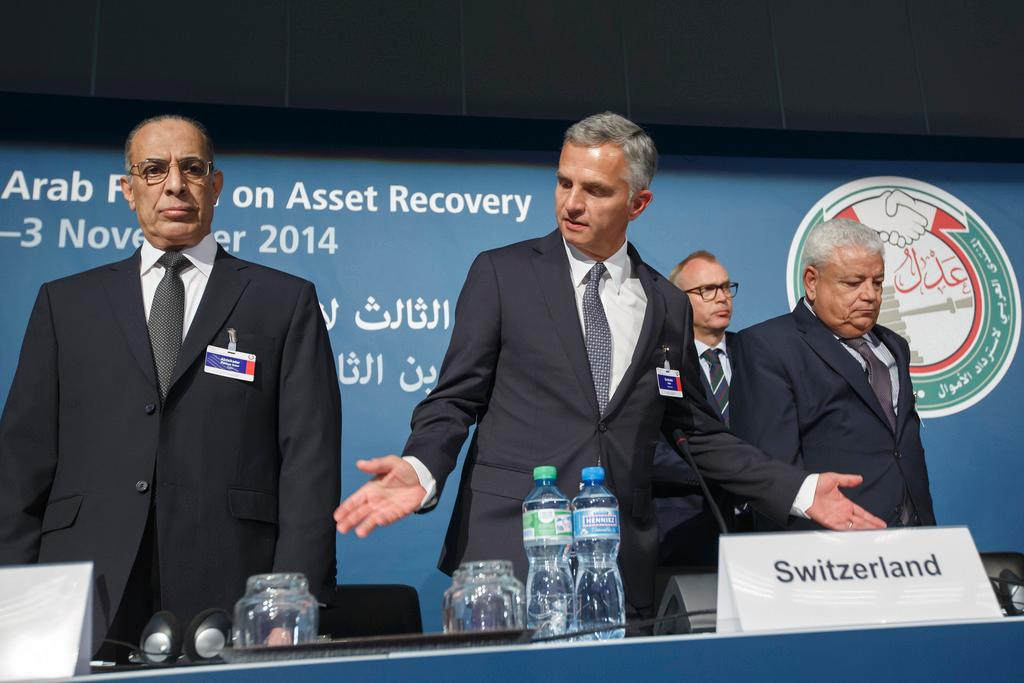
Handing back stolen state assets is complex and time-consuming but remarkable progress has been made, declared Swiss President Didier Burkhalter at the opening of the third Arab Forum on Asset Recovery (AFAR III)External link on Saturday.
The Swiss government’s political will to hand back illicit funds is ‘unwavering’, said Burkhalter: “Whether it’s Egypt, Tunisia, Libya, Ukraine or Haiti, Switzerland is continuing to work tirelessly and in close collaboration with the countries of origin of the funds to find satisfactory solutions to the pending cases.”
Over 250 officials – justice ministers, attorneys general, legal experts, lawyers and members of civil society – are attending the three-day meeting in Geneva co-chaired by Switzerland, Egypt and Tunisia to discuss ways of supporting Arab countries in transition in their efforts to recover illicitly obtained assets.
Over the past 25 years, Switzerland has restituted CHF1.7 billion in funds External linkembezzled by dictators to their countries. These include Ferdinand Marcos of the Philippines, Sani Abacha of Nigeria and Vladimiro Montesinos of Peru.
Arab Spring assets
After the fall of former Tunisian President Zine el-Abidine Ben Ali in January 2011 the Swiss cabinet blocked around CHF60 million in assets from Tunisia. In April 2014 the Federal Prosecutor’s Office confirmed it had decided to unblock two-thirds of these funds in Swiss banks. An appeal is currently before the Federal Criminal Court in Bellinzona, however.
In the case of Egypt CHF700 million were also frozen in Switzerland in 2011, following the collapse of the Egyptian regime presided over by then President Hosni Mubarak. The money was believed to have been stashed in Swiss banks by Mubarak and his entourage.
The Egyptian dossier was blocked due to regime changes and a Swiss court, but Swiss authorities remain confident a solution can be found, said Valentin Zellweger, director of the foreign ministry’s international public law department.
“The sums blocked by the cabinet in 2011 remain frozen but cooperation is continuing between Egypt and Switzerland. Legal proceedings are ongoing and each country has asked for mutual legal assistance. But these things take time.”
In a separate case at the beginning of October 2014 the Federal Criminal Court ordered the confiscation of CHF40 million in the context of Libya and imposed a prison sentence on a Tunisian-Canadian dual citizen on charges of corruption.
Tunisia and Egypt welcomed Switzerland’s efforts to return alleged stolen funds blocked in Swiss banks but said in general more could be done.
“Globally the results are well below the expectations of the Tunisian population. States have refused to cooperate. But hope is still there,” said Tunisian Justice Minister Hafedh Ben Salah.
Egypt’s justice minister Mahfous Saber Abdelkader echoed this: “The process hasn’t been resolved and progress is slow.”
“Far from enough”
According to a September report External linkby the Stolen Asset Recovery Initiative (StAR), and the Organization for Economic Cooperation and Development (OECD), from 2010-2012 OECD member states froze $1.4 billion in assets, $180 million more than in the previous four-year period.
Out of this, Switzerland froze just over half. They also gave back about $20.2 million out of the $147.2 million returned to the countries from which it was stolen.
In a statement StAR coordinator Jean Pesme said: “We welcome the progress in assets freezing. But it is still far from enough, notably on actual returns.”
The World Bank estimates that the quantity of misappropriated funds each year via the corruption of public officials in developing and transition countries amounts to $20-40 billion.
In its report StAR gave a list of recommendations for improving asset recovery, including high-level political commitment, more resources, capacity building in developing countries and better transparency and statistics.
The AFAR forum was established in 2012 on the initiative of the US presidency of the G8 aimed at Arab countries in transition in their efforts to recover illicitly obtained assets.

In compliance with the JTI standards
More: SWI swissinfo.ch certified by the Journalism Trust Initiative

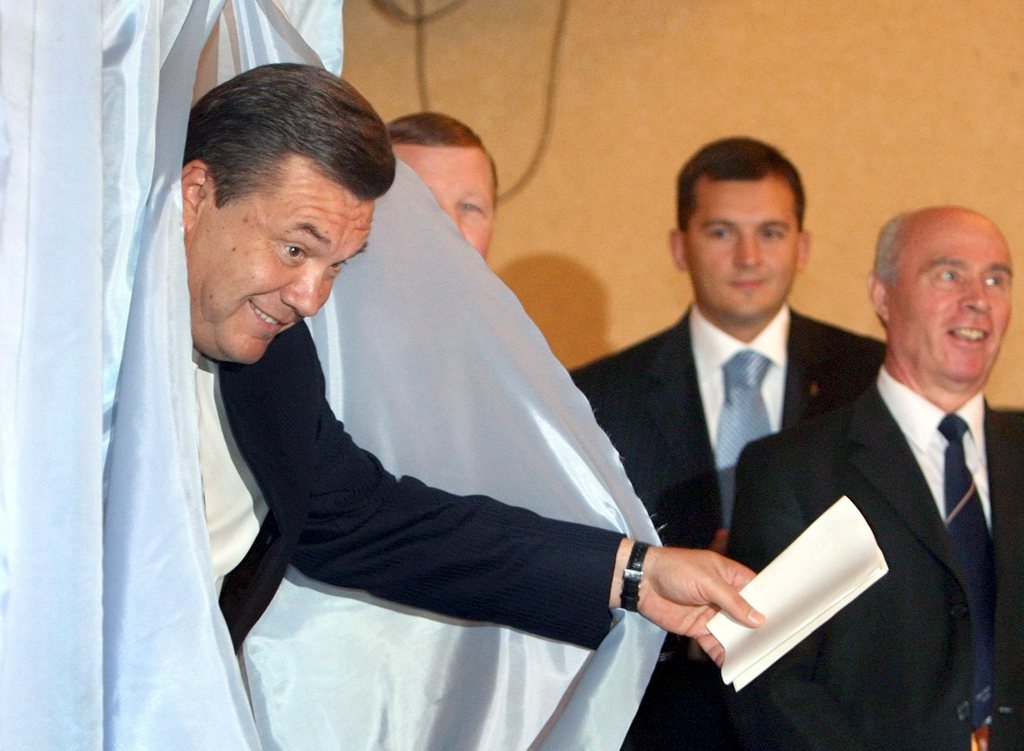
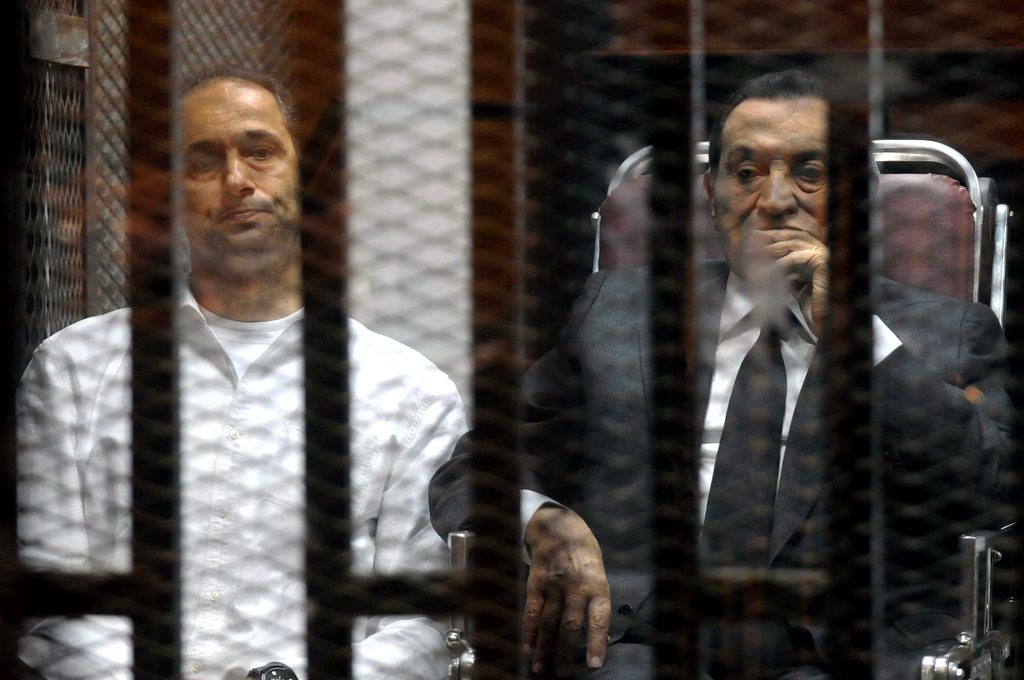
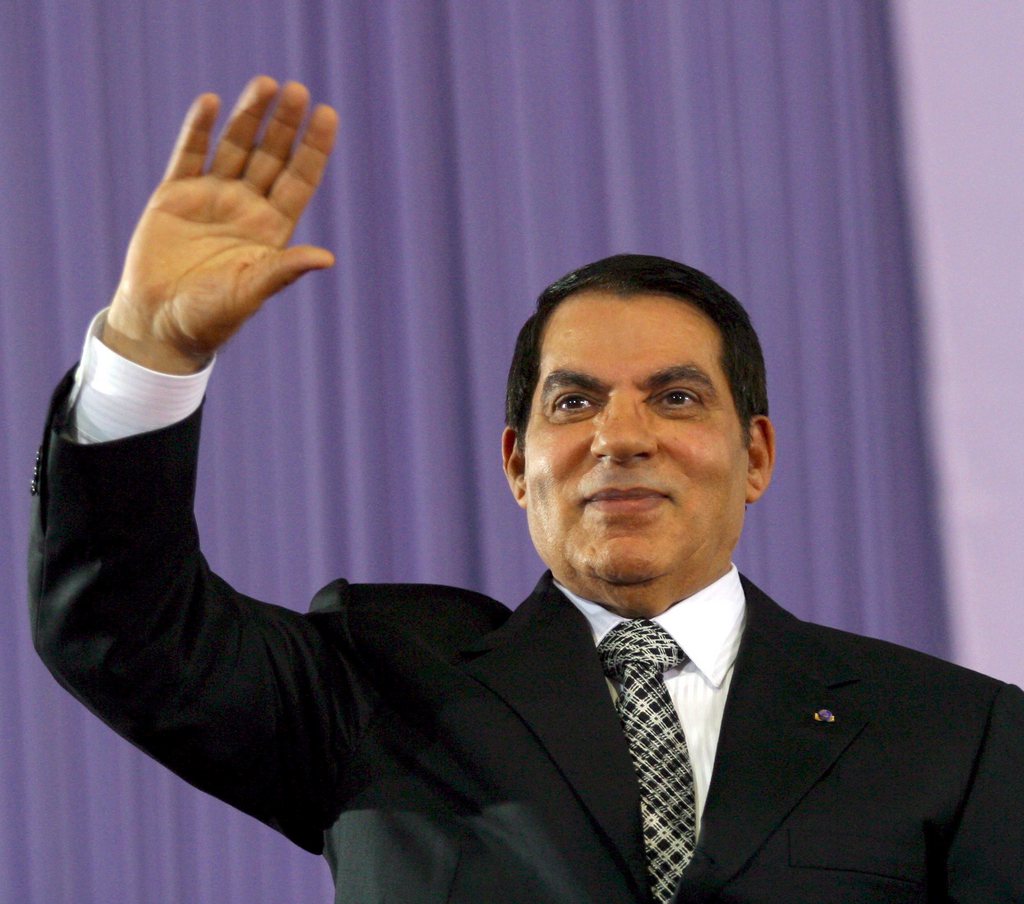
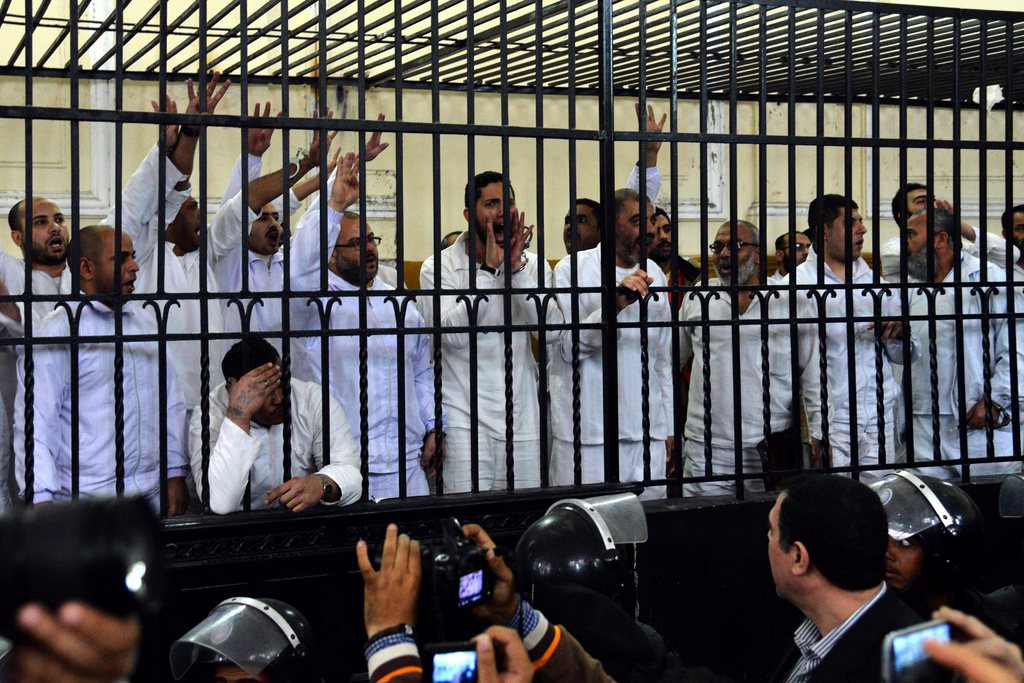
You can find an overview of ongoing debates with our journalists here. Please join us!
If you want to start a conversation about a topic raised in this article or want to report factual errors, email us at english@swissinfo.ch.